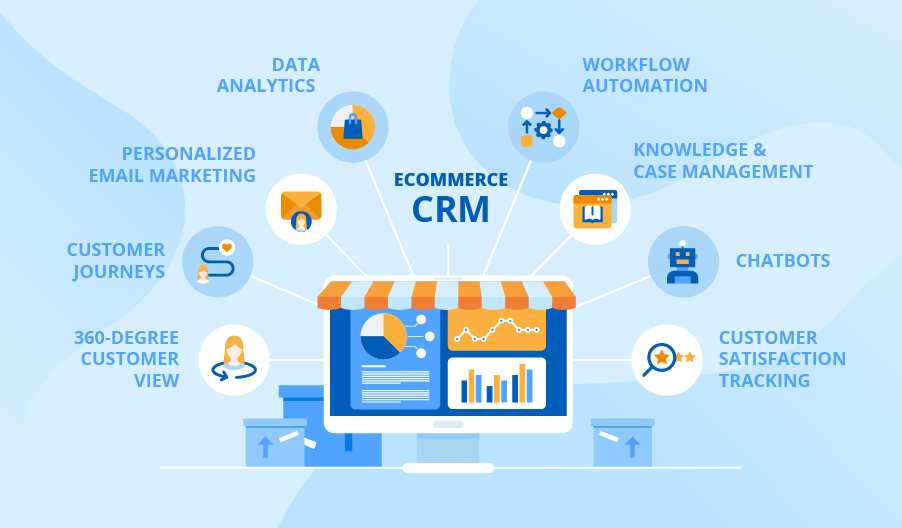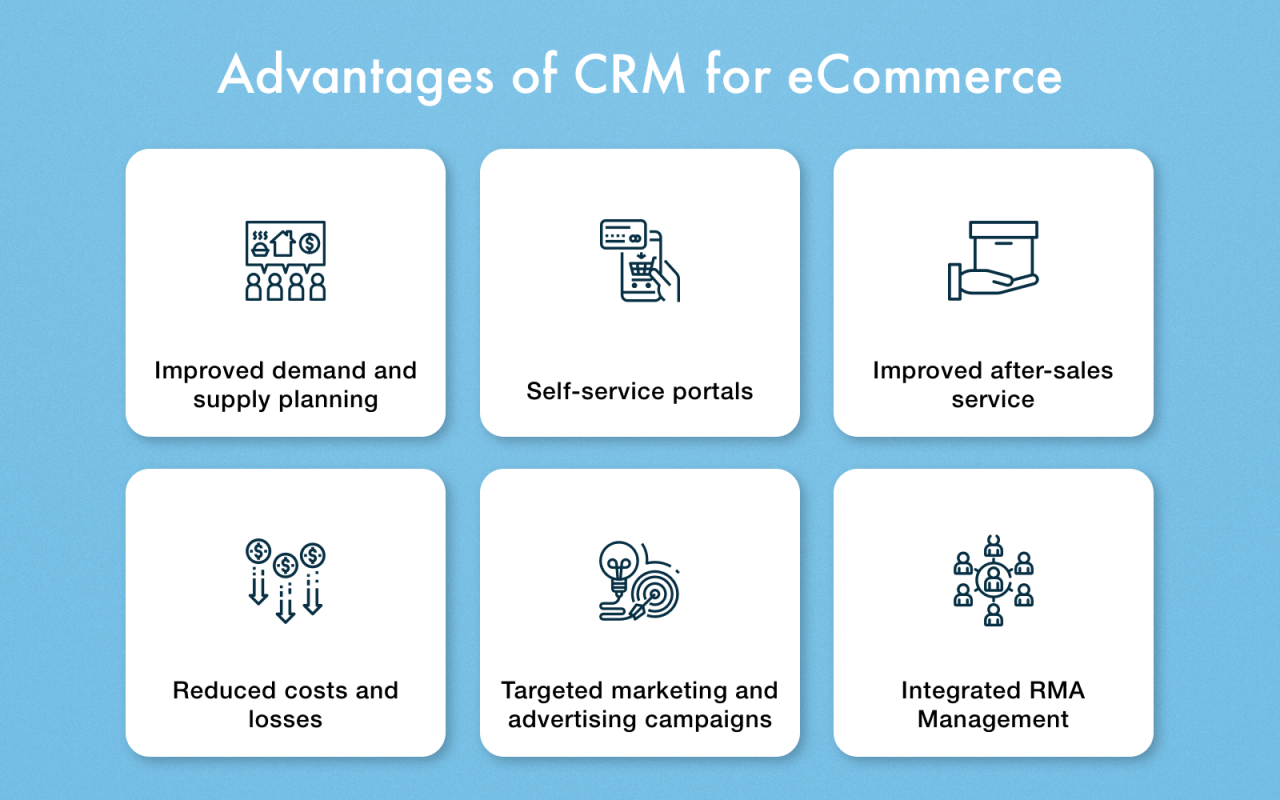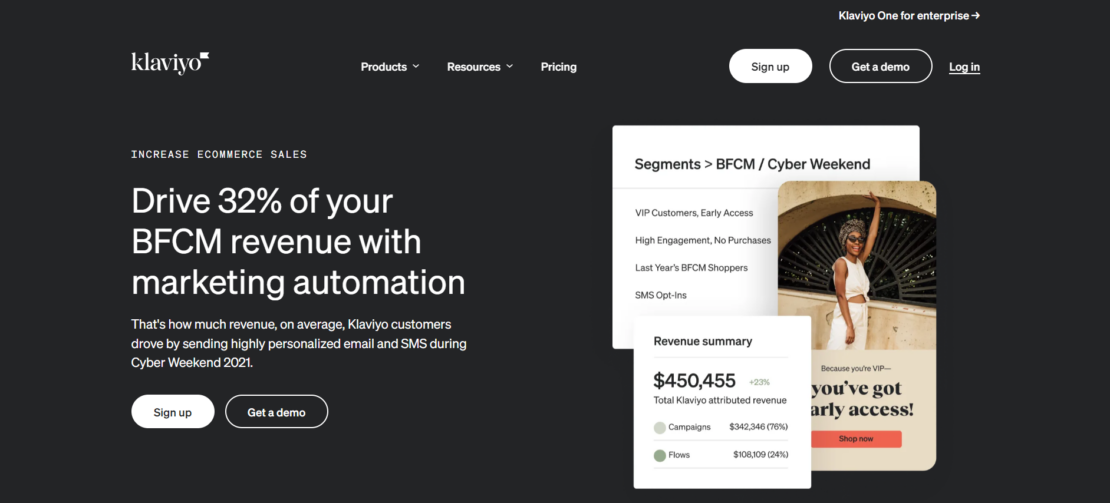CRM automation for lifestyle eCommerce brands sets the stage for this enthralling narrative, offering readers a glimpse into a story that is rich in detail and brimming with originality from the outset. As technology continues to reshape the way businesses interact with customers, the role of CRM automation becomes increasingly vital in the dynamic landscape of online retail.
In this exploration, we delve into the impact, implementation, and personalization aspects of CRM automation, shedding light on the transformative power it holds for lifestyle eCommerce brands.
As we navigate through the intricacies of CRM automation for lifestyle eCommerce brands, we uncover key strategies, tools, and considerations that pave the way for enhanced customer engagement and tailored marketing approaches. Join us on this journey as we uncover the intersection of technology and customer relations in the realm of lifestyle eCommerce.
Importance of CRM Automation for Lifestyle eCommerce Brands

CRM automation plays a crucial role in enhancing the efficiency and effectiveness of operations for lifestyle eCommerce brands. By automating various tasks, these brands can streamline their processes, improve customer engagement, and boost retention rates.
Benefits of CRM Automation for Lifestyle eCommerce Brands
- Automated Email Marketing: CRM systems can automate personalized email campaigns based on customer behavior and preferences, leading to higher open rates and conversions.
- Order Tracking and Notifications: Automated order tracking and notifications keep customers informed about their purchases, improving overall satisfaction and reducing customer service inquiries.
- Customer Segmentation: CRM automation allows brands to segment their customer base for targeted marketing campaigns, increasing the relevance of communications and driving sales.
Impact on Customer Engagement and Retention
CRM automation significantly improves customer engagement and retention for lifestyle eCommerce brands by enabling personalized interactions and timely communication. By delivering relevant content and offers to customers at the right time, brands can build stronger relationships and loyalty.
Implementing CRM Automation for Lifestyle eCommerce Brands

Implementing CRM automation for a lifestyle eCommerce brand involves several key steps to ensure a seamless transition and effective use of the system.
Setting Up CRM Automation
When setting up CRM automation for a lifestyle eCommerce brand, it is essential to:
- Define your goals and objectives for implementing CRM automation.
- Identify the specific customer touchpoints that require automation.
- Segment your customer base to personalize communications effectively.
- Integrate your CRM system with other tools and platforms for seamless data flow.
- Train your team on how to use the CRM system efficiently.
Selecting a CRM System
Key considerations when selecting a CRM system for automation purposes include:
- Scalability to accommodate the growth of your business.
- Integration capabilities with existing tools and software.
- User-friendly interface for easy adoption by your team.
- Data security features to protect customer information.
- Cross-channel communication capabilities for omnichannel marketing.
Comparison of CRM Automation Tools
| CRM Automation Tool | Key Features |
|---|---|
| HubSpot | Marketing automation, lead management, and customer service tools. |
| Salesforce | Customizable CRM platform, sales forecasting, and analytics features. |
| Zoho CRM | Workflow automation, email marketing, and social media integration. |
| Pipedrive | Sales pipeline management, contact management, and reporting tools. |
Personalization through CRM Automation
Personalization is a key strategy for lifestyle eCommerce brands to connect with customers on a deeper level and increase brand loyalty. CRM automation plays a crucial role in enhancing personalization efforts by providing valuable insights into customer behavior and preferences.
Enhanced Customer Segmentation
- CRM automation allows lifestyle eCommerce brands to segment their customer base effectively based on demographics, purchase history, browsing behavior, and more.
- By creating targeted customer segments, brands can deliver personalized marketing campaigns tailored to specific customer interests and preferences.
Automated Email Marketing Campaigns
- Through CRM automation, lifestyle eCommerce brands can set up automated email marketing campaigns triggered by specific customer actions or behaviors.
- For example, brands can send personalized product recommendations, promotional offers, or abandoned cart reminders to customers based on their past interactions with the website.
Dynamic Website Content Personalization
- CRM automation enables lifestyle eCommerce brands to personalize the content displayed on their website based on individual customer preferences.
- By analyzing customer data and behavior, brands can showcase relevant products, recommendations, and offers to enhance the overall shopping experience.
Role of Data Analytics in Personalization
- Data analytics plays a crucial role in enabling personalized customer experiences within CRM automation by providing valuable insights into customer behavior and preferences.
- By analyzing data such as purchase history, browsing behavior, and interaction patterns, brands can create personalized marketing campaigns that resonate with customers on a personal level.
- Utilizing data analytics allows lifestyle eCommerce brands to continuously optimize their personalization strategies based on real-time customer feedback and performance metrics.
Integrating CRM Automation with Marketing Strategies
Integrating CRM automation with marketing strategies is crucial for lifestyle eCommerce brands to enhance customer engagement and drive sales. By aligning CRM automation with marketing efforts, brands can personalize their communication and target the right audience effectively.
Leveraging CRM Automation for Targeted Marketing
When it comes to leveraging CRM automation for targeted marketing, brands can use customer data to segment their audience based on behavior, preferences, and purchase history. This allows for the creation of personalized campaigns that resonate with individual customers.
- Utilize customer segmentation to send targeted emails with relevant product recommendations based on past purchases.
- Implement automated workflows to send follow-up messages or offers based on customer interactions with the brand.
- Use dynamic content in marketing campaigns to deliver personalized messages to different customer segments.
Challenges and Solutions in Integrating CRM Automation with Marketing Channels
Integrating CRM automation with various marketing channels can pose challenges, but with the right strategies, these obstacles can be overcome to drive successful marketing campaigns.
- Challenge:Ensuring consistent data across platforms.
- Solution:Integrate CRM systems with marketing tools to sync customer data in real-time.
- Challenge:Managing multiple marketing channels efficiently.
- Solution:Use automation to streamline marketing processes and ensure cohesive messaging across channels.
- Challenge:Measuring the effectiveness of integrated campaigns.
- Solution:Implement tracking mechanisms and analytics to monitor campaign performance and adjust strategies accordingly.
Final Wrap-Up

In conclusion, CRM automation emerges as a beacon of innovation and efficiency for lifestyle eCommerce brands, revolutionizing the way they connect with their audience and drive business growth. By harnessing the power of automation, these brands can unlock new levels of personalization, streamline marketing efforts, and cultivate lasting customer relationships.
As the digital landscape continues to evolve, embracing CRM automation stands as a cornerstone for success in the ever-changing world of online retail.
Essential FAQs
What are the benefits of CRM automation for lifestyle eCommerce brands?
CRM automation streamlines customer interactions, enhances marketing efforts, and boosts customer retention rates.
How can CRM automation improve personalized customer experiences?
By leveraging data analytics, CRM automation enables targeted marketing campaigns, tailored recommendations, and personalized communication with customers.
What challenges are faced when integrating CRM automation with marketing strategies?
Common challenges include data integration issues, alignment between sales and marketing teams, and ensuring consistent messaging across different channels.









